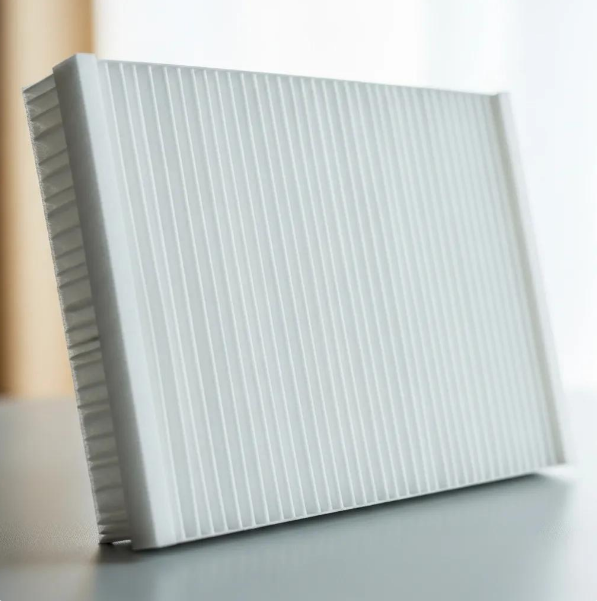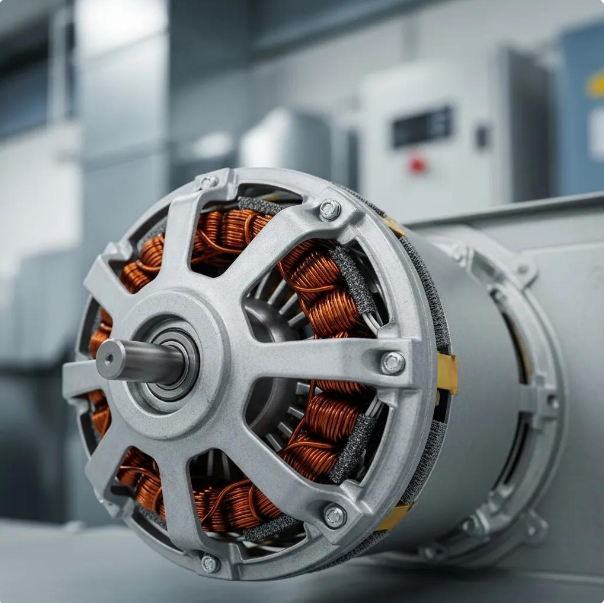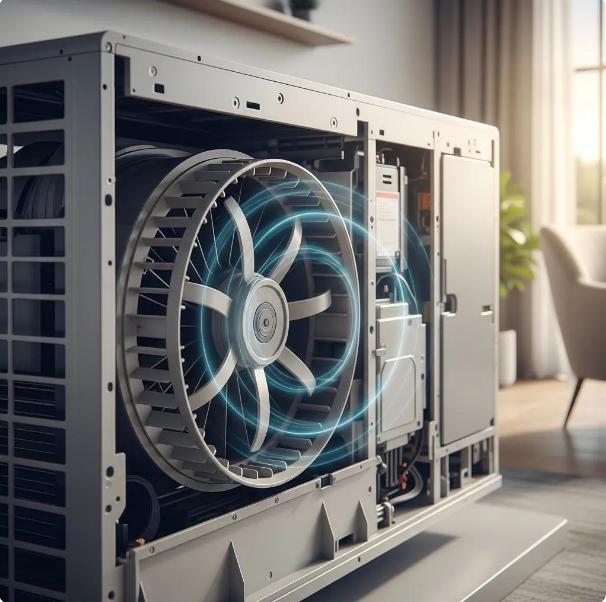3 Best Types of Air Conditioning Systems to Install for Commercial Buildings


Government Rebates Now Available on Energy-Efficient Air Conditioners when Replacing your Gas Heater.
Selecting the right air conditioning system for a commercial building is important for ensuring optimal comfort, energy efficiency, and cost-effectiveness. Unlike residential air conditioning, commercial systems must cater to larger spaces, diverse occupancy patterns, and varying heat loads. The choice of an air conditioning system can significantly impact a business's operational costs and employee productivity.
When choosing an air conditioning system for a commercial building, several factors come into play. These include the building's size and layout, the number of occupants, heat-generating equipment, and specific cooling requirements of different areas. It's essential to consider energy efficiency ratings, installation costs, and long-term maintenance needs.
Professional air conditioning installers play a vital role in this process. Our expertise is invaluable in assessing the building's unique requirements and recommending the most suitable system. Oz Air Group in Melbourne, with its extensive experience in commercial air conditioning, can provide tailored recommendations to ensure the best solution for your business.
What Is Commercial Air Conditioning?
Commercial air conditioning refers to cooling systems designed specifically for use in business environments, such as offices, retail spaces, and industrial facilities. These systems are engineered to cool larger areas efficiently, manage higher heat loads, and operate for extended periods. Commercial air conditioning is important for maintaining a comfortable working environment, protecting sensitive equipment, and ensuring optimal conditions for various business operations.
Which commercial buildings require air conditioning the most?
Commercial buildings that require air conditioning the most include data centres, hospitals, hotels, and large office complexes. Data centres need constant cooling to prevent equipment from overheating. Hospitals require precise temperature control for patient comfort and medical equipment functionality. Hotels must maintain guest comfort across numerous rooms and common areas. Large office complexes house many people and heat-generating equipment, necessitating robust cooling systems to ensure a productive work environment.
3 Most Common Types of Commercial Air Conditioning Systems
The following list outlines the most common air conditioning solutions installed for commercial purposes. Each type has its unique features and benefits, catering to different commercial needs.
Central Air Conditioning
Central air conditioning is a system that cools air at a central location and distributes it throughout the building via ducts. It's one of the most popular choices for large commercial spaces due to its ability to cool multiple areas efficiently.
This type of air conditioning is often chosen for commercial purposes because of its capacity to cool large areas uniformly. It's particularly well-suited for multi-storey buildings, shopping centres, and office complexes.
The advantages of central air conditioning for commercial use include:
- Consistent cooling across large spaces
- Centralised control for easy management
- Ability to integrate with heating systems for year-round climate control
- Generally quieter operation in occupied spaces
Businesses with large, open floor plans or multiple connected spaces should consider installing central air conditioning. It's also ideal for buildings where a consistent temperature needs to be maintained across different areas.
Ductless Air Conditioner
A ductless air conditioner, also known as a split system, consists of an outdoor compressor unit connected to one or more indoor air-handling units. These systems don't require ductwork, making them increasingly popular for commercial applications.
Ductless systems are gaining popularity in commercial settings due to their flexibility and energy efficiency. They're often chosen for buildings where installing ductwork is impractical or for businesses looking to create separate climate zones.
The advantages of ductless air conditioning for commercial purposes include:
- Easy installation with minimal structural changes
- Individual temperature control for different areas
- High energy efficiency
- Improved air quality due to lack of ducts
Businesses should consider installing ductless air conditioners if they have older buildings without existing ductwork, need to cool specific areas independently, or want to add air conditioning to a new section of their property.
Single Split Air Conditioning Systems
Single split air conditioning systems consist of one outdoor unit connected to one indoor unit. Each system operates independently, providing cooling for a single space.
These systems are popular in small to medium-sized commercial spaces due to their simplicity and cost-effectiveness. They're often chosen for shops, small offices, or server rooms where cooling needs are localised.
The advantages of single-split air conditioning systems for commercial use include the following:
- Cost-effective for smaller spaces
- Easy installation and maintenance
- Independent control for each unit
- Flexibility to add units as needed
Businesses should consider installing single split air conditioning systems if they have smaller commercial spaces, need to cool specific areas independently, or want the flexibility to expand their cooling capacity gradually.
What is the importance of Air conditioning for commercial buildings?
From an operational perspective, air conditioning is crucial for commercial buildings. It directly impacts employee productivity by maintaining a comfortable work environment. Proper air conditioning helps protect sensitive equipment from overheating, ensures product quality in retail and food service industries, and contributes to customer comfort in hospitality settings. Moreover, it plays a vital role in maintaining indoor air quality, which is essential for employee health and well-being.
What is the purpose of Commercial Air Conditioning?
The primary purpose of commercial air conditioning is to create and maintain a comfortable indoor environment conducive to business operations. It achieves this by regulating temperature, humidity, and air circulation.
Benefits of commercial air conditioning include:
- Enhanced employee productivity and comfort
- Protection of equipment and inventory
- Improved indoor air quality
- Compliance with workplace health and safety regulations
- Increased customer satisfaction in retail and hospitality settings
How to choose the best air conditioning system for commercial buildings
Selecting the best air conditioning system for a commercial building involves several key steps:
- Assess the building's size and layout: The system's capacity should match the building's dimensions and configuration.
- Consider occupancy patterns: The number of people and their typical activities affect cooling requirements.
- Evaluate heat-generating equipment: Factor in the heat produced by computers, machinery, and lighting.
- Analyse energy efficiency ratings: Higher ratings can lead to significant long-term cost savings.
- Review installation and maintenance costs: Consider both upfront and ongoing expenses.
- Check noise levels: Ensure the system won't disrupt work environments.
- Examine zoning options: Determine if different areas need independent temperature control.
- Consider future expansion: Choose a system that can accommodate potential growth.
Each step is important as it directly impacts the system's effectiveness, efficiency, and suitability for the specific commercial space. It's important to note that these considerations may vary depending on the type of commercial building, such as differences between a restaurant and an office complex.
Given the complexity of these factors, it's highly recommended to consult with professional air conditioning specialists for a thorough assessment and tailored recommendations.
Who can help choose the best Commercial Air Conditioning to Install
Professional air conditioning installers are the best resource for choosing the right commercial air conditioning system. Our air conditioning experts have the knowledge and experience to assess a building's specific needs and recommend the most suitable solutions. We can conduct load calculations, evaluate energy efficiency options, and provide insights into long-term operational costs.
Oz Air Group, based in Melbourne, has established a strong reputation in the commercial air conditioning sector. With years of experience in consulting and installing commercial air conditioning systems, we offer expert guidance tailored to each business's unique requirements. Our team of professionals air conditioning experts can provide comprehensive assessments and customised solutions to ensure optimal cooling performance for any commercial space.
Who is the Best commercial air conditioning installation company in Melbourne?
In the context of commercial air conditioning installation, 'best' refers to a company that consistently delivers high-quality, efficient, and reliable systems while providing excellent customer service. The best commercial air conditioning installation company should have extensive experience in commercial installations, a track record of successful projects, and positive customer feedback.
When looking for a professional commercial air conditioning installer, consider the following criteria:
- Experience in commercial installations
- Licensing and certifications
- Range of services offered
- Customer reviews and testimonials
- Warranty and after-sales support
- Knowledge of energy-efficient systems
Oz Air Group stands out as a leading commercial air conditioning installation company in Melbourne. With our extensive experience in consulting and installing commercial air conditioning systems, we have built a reputation for delivering tailored, efficient solutions. Our team of experts understands the unique challenges of commercial cooling and can provide comprehensive services from initial assessment to installation and ongoing maintenance.
What are the benefits of choosing the right Commercial Air Conditioning?
Selecting the appropriate commercial air conditioning system yields numerous benefits for businesses. The right system ensures optimal comfort for employees and customers, leading to increased productivity and satisfaction. It can significantly reduce energy consumption and operational costs, contributing to the business's bottom line. A well-chosen system also provides better air quality, promoting health and well-being in the workplace. Furthermore, it can enhance the longevity of equipment and reduce maintenance needs, resulting in long-term cost savings. Ultimately, the right commercial air conditioning system is an investment in the efficiency, comfort, and success of a business.
Areas we service
Oz Air covers Melbourne and its northern suburbs.

Get in touch






.png)









.png)